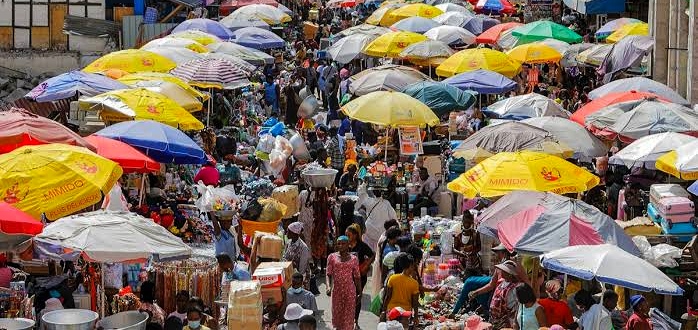By John Ikani
Business owners in Ghana have threatened to close up shop by Monday, August 29, to protest the poor value of the Ghanaian currency, the cedi.
At 10 cedis to the US dollar, traders are finding it difficult to stay in business as the cost of importing and clearing goods continues to rise.
Prices for most basic goods and services have doubled over the last couple of months in Ghana, but incomes for the most part.
Briefing newsmen on the planned protests, President of the Ghana Union of Traders Associations, Joseph Obeng, said increasing interest rates and multiple taxes borne by traders were some of the factors responsible for the increase in commodity prices.
“We are demonstrating against the government to show the extent that we are suffering… The intention is not to punish the consuming public”, Obeng said.
In solidarity with the planned demonstration, the Ghana Institute of Freight Forwarders, an umbrella body for clearing agents, says it will also cease operations on Monday.
In case you missed it
A recent currency performance ranking by Bloomberg has classified the Cedi as the worst-performing currency across the globe.
According to data put out by the Bank of Ghana, the Cedi began the year at $1.00 to GH¢6.02.
Just a month ago, one could exchange $1.00 for GH¢7.43, and in less than 20 days, traders needed an average of GH¢9.37 to buy $1.00.
This means the Cedi has lost most than GH¢3.30 of its value to the dollar in less done 8 months.
Inflation in Ghana now stands at over 31% – the highest in the last 20 years.
The government has pointed the blame at the Covid-19 pandemic and the recent Russia-Ukraine war.
But earlier there had been concerns about the country’s public debt, which now stands at $45.5bn (£38.3bn) – more than 77% of the country’s gross domestic product (GDP).




































